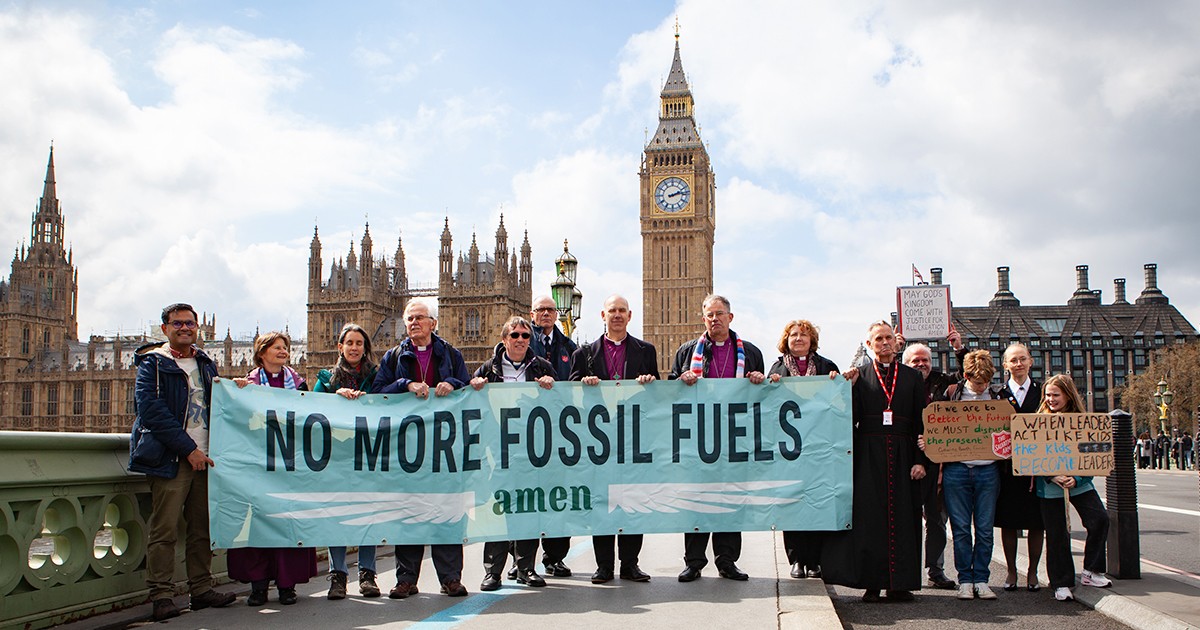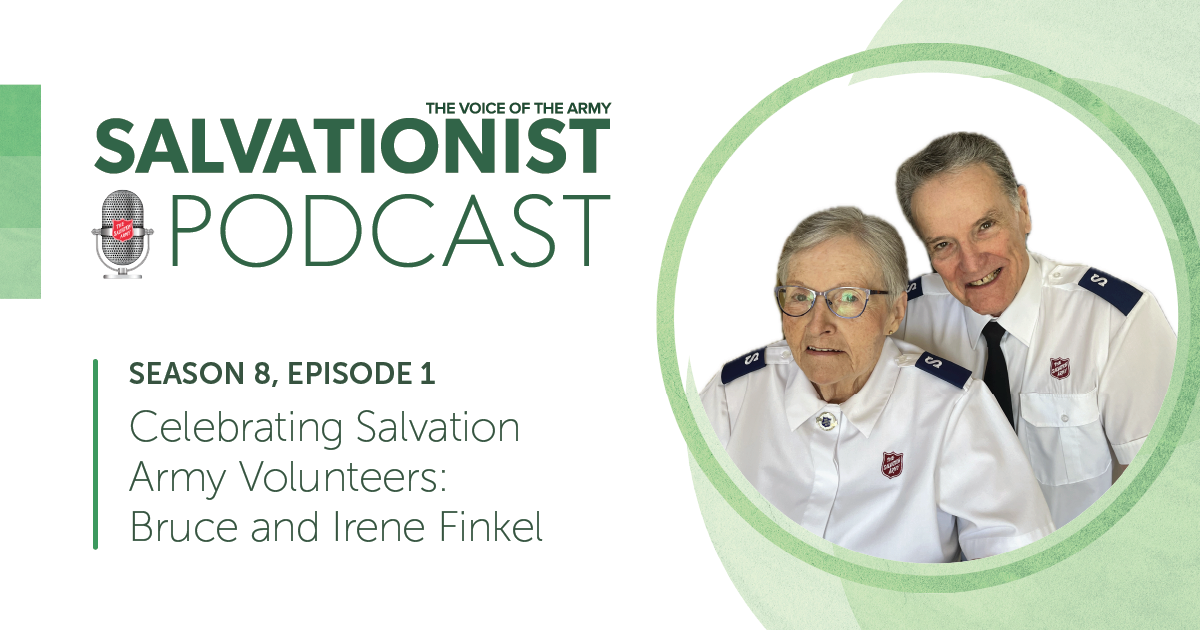This month in the Canada and Bermuda Territory, we are focusing on the Atlantic Congress and Commissioning events taking place in St. John's, N.L., from June 18-20. There are some in our ranks who believe that congresses have lost their allure and lustre. As rationale for discontinuing them, they put forward the high cost of travel and accommodation coupled with a waning interest in denominationalism. The question is posed: Are we not better served by investing our energy and resources at the local level?
I grew up attending a small corps that reflected few Army traditions. Singing company and songsters were non-existent and attempts to develop a banding program were haphazard at best. Qualified leaders and financial resources were at a premium. However, corps members felt a strong sense of belonging. The Salvation Army was their church home and they were proud to be counted as Salvationists. Divisional events such as youth councils and congress were vital links in connecting the small corps to the wider Army and its mission. Sure, we had the annual Self-Denial Appeal with the large world map on the wall, pinpointing the location of Canadian officers serving as missionaries overseas. Occasionally, overseas officers on homeland furlough would visit and show slides of their work in faraway lands. But rarely did we realize that a larger, more diverse Salvation Army existed beyond our corps' four walls.
This month, 3,000 Salvationists from the Atlantic region and beyond will come together to celebrate a common faith and heritage. Eighteen cadets from the Prayer Warriors Session will be ordained and commissioned as Salvation Army officers. Their profiles appear here. Our senior editor, John McAlister, interviewed General Shaw Clifton in anticipation of his and Commissioner Helen Clifton's visit to the Canada and Bermuda Territory to lead the Atlantic Congress. When asked about the benefits of congresses and his hopes and expectations for this one, the General spoke of the need for encouragement, new vision and the realization that we are not alone in our service for Christ (read the full interview here). One could readily add to this list the positive impact that the congress will have on the surrounding community.
More than 50 percent of our corps are located in rural towns and villages throughout Canada. The average Sunday morning attendance is about 50. Many corps are isolated geographically and struggle to make ends meet. Congress gatherings are expensive. And yes, there continues to be a waning loyalty to all church denominations, including the Army, throughout the Western world. But I wonder if this is not all the more reason to hold such events on a regular basis. Without vision, the people perish. People value what they invest in. Congresses require a commitment of time and money on the part of Salvationists. But the opportunity to experience a wider Army fellowship and actively participate in its worldwide mission is priceless.
We welcome our international leaders to the Canada and Bermuda Territory. We salute the divisional leaders and the officers and volunteers who have worked hard to make the congress a reality. To paraphrase the words of Doris Rendell (SASB 833), may all who participate in the Atlantic Congress catch the vision splendid of a world which is to be.
 Major Jim Champ is Editor-in-Chief and Literary Secretary for The Salvation Army. He is also a member of the Governing Board of the Canadian Council of Churches.
Major Jim Champ is Editor-in-Chief and Literary Secretary for The Salvation Army. He is also a member of the Governing Board of the Canadian Council of Churches.
I grew up attending a small corps that reflected few Army traditions. Singing company and songsters were non-existent and attempts to develop a banding program were haphazard at best. Qualified leaders and financial resources were at a premium. However, corps members felt a strong sense of belonging. The Salvation Army was their church home and they were proud to be counted as Salvationists. Divisional events such as youth councils and congress were vital links in connecting the small corps to the wider Army and its mission. Sure, we had the annual Self-Denial Appeal with the large world map on the wall, pinpointing the location of Canadian officers serving as missionaries overseas. Occasionally, overseas officers on homeland furlough would visit and show slides of their work in faraway lands. But rarely did we realize that a larger, more diverse Salvation Army existed beyond our corps' four walls.
This month, 3,000 Salvationists from the Atlantic region and beyond will come together to celebrate a common faith and heritage. Eighteen cadets from the Prayer Warriors Session will be ordained and commissioned as Salvation Army officers. Their profiles appear here. Our senior editor, John McAlister, interviewed General Shaw Clifton in anticipation of his and Commissioner Helen Clifton's visit to the Canada and Bermuda Territory to lead the Atlantic Congress. When asked about the benefits of congresses and his hopes and expectations for this one, the General spoke of the need for encouragement, new vision and the realization that we are not alone in our service for Christ (read the full interview here). One could readily add to this list the positive impact that the congress will have on the surrounding community.
More than 50 percent of our corps are located in rural towns and villages throughout Canada. The average Sunday morning attendance is about 50. Many corps are isolated geographically and struggle to make ends meet. Congress gatherings are expensive. And yes, there continues to be a waning loyalty to all church denominations, including the Army, throughout the Western world. But I wonder if this is not all the more reason to hold such events on a regular basis. Without vision, the people perish. People value what they invest in. Congresses require a commitment of time and money on the part of Salvationists. But the opportunity to experience a wider Army fellowship and actively participate in its worldwide mission is priceless.
We welcome our international leaders to the Canada and Bermuda Territory. We salute the divisional leaders and the officers and volunteers who have worked hard to make the congress a reality. To paraphrase the words of Doris Rendell (SASB 833), may all who participate in the Atlantic Congress catch the vision splendid of a world which is to be.
 Major Jim Champ is Editor-in-Chief and Literary Secretary for The Salvation Army. He is also a member of the Governing Board of the Canadian Council of Churches.
Major Jim Champ is Editor-in-Chief and Literary Secretary for The Salvation Army. He is also a member of the Governing Board of the Canadian Council of Churches.









Leave a Comment